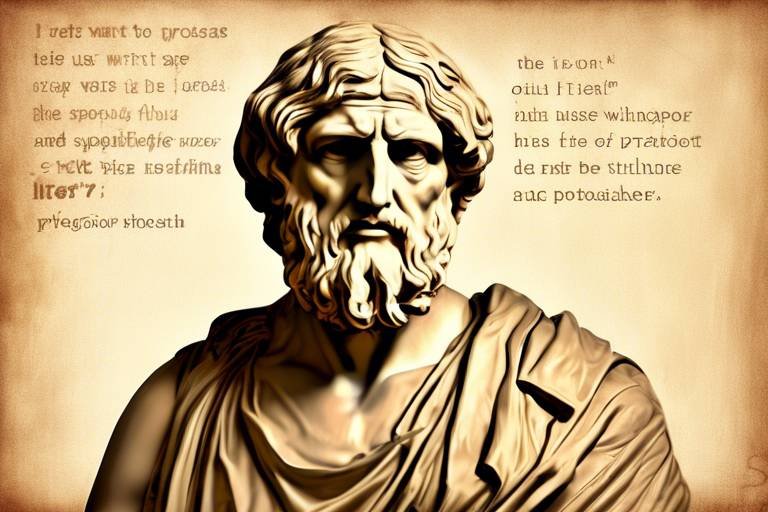The Philosophy of John Dewey and Modern Education
John Dewey, a towering figure in the field of education, revolutionized the way we think about learning and teaching. His philosophy is not just a collection of abstract ideas; it’s a dynamic framework that has profoundly influenced modern educational practices. Dewey believed that education should be more than mere rote memorization or passive absorption of facts. Instead, he championed the idea that learning should be an active, engaging experience that connects students to the real world. This approach is especially relevant today, as educators strive to prepare students for a rapidly changing society.
Dewey's vision was rooted in the belief that education should be a democratic process, where students are encouraged to think critically, collaborate with peers, and engage in experiential learning. He argued that by immersing students in real-life situations, they would not only acquire knowledge but also develop essential skills such as problem-solving and critical thinking. In a world where information is constantly evolving, these skills are crucial for students to navigate their futures successfully.
Moreover, Dewey's emphasis on community and collaboration within the educational environment highlights the importance of social interaction in learning. He believed that when students work together, they bring diverse perspectives and experiences to the table, enriching the learning experience for everyone involved. This collaborative spirit fosters a sense of belonging and prepares students for active participation in their communities.
In this article, we will delve deeper into Dewey's philosophy, exploring key concepts such as experiential learning, democracy in education, and the relevance of his theories in contemporary teaching practices. Through this exploration, we will see how Dewey's ideas continue to shape educational methodologies, making them more inclusive, engaging, and relevant to today's learners.
Dewey championed experiential learning, arguing that education should be rooted in real-life experiences. He believed that true learning occurs when students are actively engaged in the process, rather than passively receiving information. This approach promotes critical thinking and problem-solving skills, which are essential for students in a rapidly changing world. Imagine a classroom where students are not just listening to lectures but are out in the community, conducting experiments, or working on projects that have real-world implications. This is the essence of Dewey's vision for education.
Dewey believed that education should foster democratic ideals. He argued that schools should be places where students learn to engage in collaborative learning and develop a sense of social responsibility. This is crucial for a functioning democracy, as it prepares students to be active, informed citizens. When students learn to work together, respect differing opinions, and contribute to group discussions, they are not just learning academic content; they are also learning how to be part of a community.
The role of community in education is vital according to Dewey. He emphasized that collaboration among students enhances learning experiences and prepares them for active participation in society. When students are encouraged to collaborate, they learn to appreciate the value of teamwork and the importance of diverse perspectives. This not only enriches their educational experience but also equips them with the skills they need to navigate the complexities of modern life.
Group projects exemplify Dewey's ideas by allowing students to work together, share diverse perspectives, and learn from one another. In these collaborative settings, students can tackle complex problems, brainstorm solutions, and develop a sense of community within the classroom. As they engage with their peers, they also learn valuable life skills such as communication, negotiation, and conflict resolution.
Peer learning aligns with Dewey's philosophy by promoting mutual support among students. It enhances understanding and builds essential social skills necessary for future interactions in diverse environments. When students teach each other, they reinforce their own knowledge while helping their classmates grasp challenging concepts. This reciprocal learning process creates a vibrant educational atmosphere where everyone benefits.
Dewey emphasized the importance of active participation in learning. He asserted that students learn best when they are directly involved in the educational process rather than being passive recipients of information. This notion challenges traditional teaching methods that often prioritize lectures and standardized testing. Instead, Dewey's philosophy advocates for an interactive classroom where students are encouraged to ask questions, explore ideas, and engage in hands-on activities.
Dewey's educational theories remain relevant, influencing modern pedagogical approaches that emphasize student-centered learning, critical thinking, and the integration of technology in the classroom. In today’s educational landscape, where technology is ubiquitous, Dewey's ideas about experiential learning and active participation are more important than ever. Educators are increasingly adopting strategies that align with his vision, creating learning environments that prepare students for the complexities of the 21st century.
Project-based learning reflects Dewey's principles by encouraging students to engage in hands-on projects. This approach fosters creativity and deeper understanding of subjects through real-world applications. Instead of merely memorizing facts, students are challenged to apply their knowledge in meaningful ways, making learning relevant and exciting.
The incorporation of technology in education aligns with Dewey's vision. Innovative tools enhance learning experiences and prepare students for the challenges of the digital age. By using technology, educators can create interactive and engaging lessons that resonate with today's learners, making Dewey's philosophy even more applicable in our modern classrooms.
- What is John Dewey's main contribution to education?
Dewey's main contribution lies in his advocacy for experiential learning and the idea that education should be a democratic process.
- How does Dewey's philosophy apply to modern education?
His philosophy emphasizes student-centered learning, collaboration, and the integration of technology, all of which are prevalent in contemporary educational practices.
- Why is community important in Dewey's educational philosophy?
Dewey believed that collaboration and community engagement enhance learning experiences and prepare students for active participation in society.

Experiential Learning
John Dewey was a visionary who understood that education should not merely be about memorizing facts or regurgitating information. Instead, he championed the idea of , which emphasizes the importance of real-life experiences in the learning process. Imagine a classroom where students are not just passive recipients of knowledge but active participants in their education. This approach encourages them to engage, explore, and experiment, leading to a deeper understanding of the material. Dewey believed that when students are involved in hands-on activities, they develop critical thinking and problem-solving skills that are essential in today’s rapidly changing world.
Experiential learning is about connecting theory to practice. For instance, rather than simply learning about the water cycle in textbooks, students might engage in a project where they create a mini-ecosystem. They observe firsthand how water evaporates, condenses, and precipitates, thereby experiencing the cycle in action. This method fosters a sense of curiosity and inquiry, prompting students to ask questions and seek out answers. The learning becomes personal and relevant, making it stick in their minds long after the lesson is over.
Another key aspect of experiential learning is its ability to cater to various learning styles. Some students might grasp concepts better through visual experiences, while others may benefit from tactile engagement. By incorporating diverse activities—such as group discussions, field trips, and interactive simulations—teachers can create a rich learning environment that addresses the needs of all students. This diversity not only enhances understanding but also promotes a sense of community and collaboration among learners.
To further illustrate Dewey's philosophy, here is a simple table that outlines the differences between traditional and experiential learning:
| Aspect | Traditional Learning | Experiential Learning |
|---|---|---|
| Role of Students | Passive recipients | Active participants |
| Learning Environment | Classroom-based | Real-world contexts |
| Focus | Memorization | Understanding and application |
| Assessment | Standardized tests | Project outcomes and reflections |
In conclusion, Dewey's advocacy for experiential learning invites us to rethink how we approach education. It urges teachers to create environments where students can learn through doing, fostering a spirit of inquiry that prepares them for real-world challenges. This approach not only enhances academic performance but also equips students with the skills they need to thrive in an ever-evolving society.
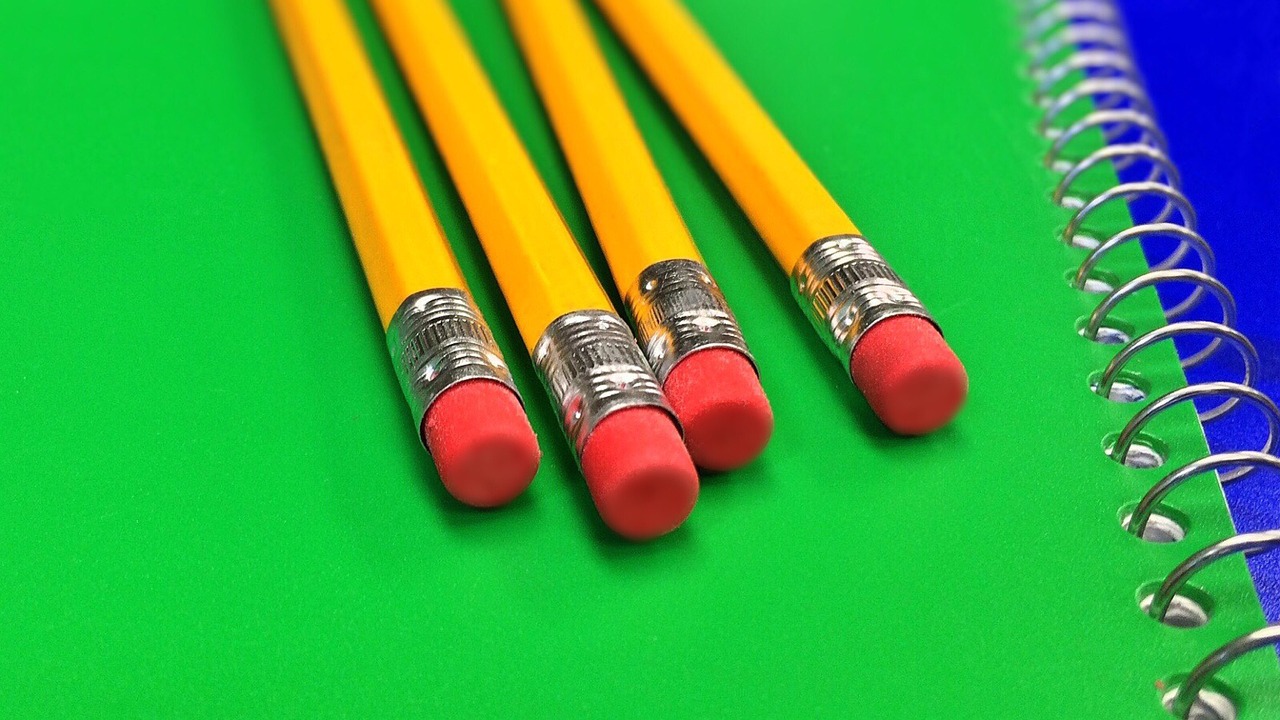
Democracy in Education
This article explores John Dewey's philosophical contributions to education, emphasizing his ideas on experiential learning, democracy in education, and the relevance of his theories in contemporary teaching practices.
Dewey championed experiential learning, arguing that education should be rooted in real-life experiences, promoting critical thinking and problem-solving skills essential for students in a rapidly changing world.
John Dewey believed that education should be a cornerstone of democracy, not just a means to acquire knowledge. He argued that fostering democratic ideals within the educational system is crucial for developing responsible citizens. In his view, education should not merely be about rote memorization or passive learning; rather, it should inspire students to engage actively with their communities and the world around them. By encouraging collaborative learning and social responsibility, Dewey's philosophy promotes a sense of belonging and empowerment among students.
One of the key components of Dewey's vision is the idea of community and collaboration. He posited that learning is inherently social, and when students work together, they not only enhance their understanding of the material but also build essential social skills. This collaborative environment mirrors democratic practices, where individuals learn to respect diverse perspectives and work towards common goals.
To illustrate this point further, consider the following aspects of Dewey's approach to democracy in education:
- Engagement: Students are encouraged to participate actively in discussions and decision-making processes, fostering a sense of ownership over their education.
- Social Interaction: By working together, students learn to communicate effectively, resolve conflicts, and appreciate different viewpoints.
- Responsibility: Education should instill a sense of duty towards the community, encouraging students to contribute positively to society.
Through these principles, Dewey's philosophy cultivates an educational atmosphere that prepares students for active participation in a democratic society. It is not just about learning facts but about understanding one's role within a larger community. This approach equips students with the necessary tools to navigate the complexities of modern life and contribute to a more equitable world.
The role of community in education is vital according to Dewey, as collaboration among students enhances learning experiences and prepares them for active participation in society. When students engage in group activities, they experience firsthand the value of teamwork and the importance of diverse perspectives. This collaborative learning environment fosters a sense of belonging and helps students develop critical social skills.
Group projects exemplify Dewey's ideas by allowing students to work together, share diverse perspectives, and learn from one another, fostering a sense of community within the classroom. These projects are not just about completing a task; they are about building relationships, negotiating differences, and arriving at collective solutions. This mirrors the democratic process, where collaboration and compromise are essential for progress.
Peer learning aligns with Dewey's philosophy by promoting mutual support among students, enhancing understanding, and building essential social skills necessary for future interactions in diverse environments. When students teach each other, they reinforce their own learning while also developing empathy and communication skills. This reciprocal learning experience is invaluable in nurturing a democratic mindset.
Dewey emphasized the importance of active participation in learning, asserting that students learn best when they are directly involved in the educational process rather than being passive recipients of information. This engagement transforms the classroom into a dynamic space where ideas can be exchanged freely, and students feel empowered to express their thoughts and opinions.
Dewey's educational theories remain relevant, influencing modern pedagogical approaches that emphasize student-centered learning, critical thinking, and the integration of technology in the classroom.
Project-based learning reflects Dewey's principles by encouraging students to engage in hands-on projects, fostering creativity and deeper understanding of subjects through real-world applications.
The incorporation of technology in education aligns with Dewey's vision, providing students with innovative tools to enhance their learning experiences and prepare them for the challenges of the digital age.
- What is experiential learning? Experiential learning is a hands-on approach to education where students learn through real-life experiences rather than traditional lectures.
- How does Dewey's philosophy influence modern education? Dewey's philosophy encourages student-centered learning, collaborative projects, and active participation, which are integral to contemporary teaching practices.
- Why is democracy important in education? Democracy in education fosters social responsibility, critical thinking, and collaborative skills, preparing students to be active, informed citizens.
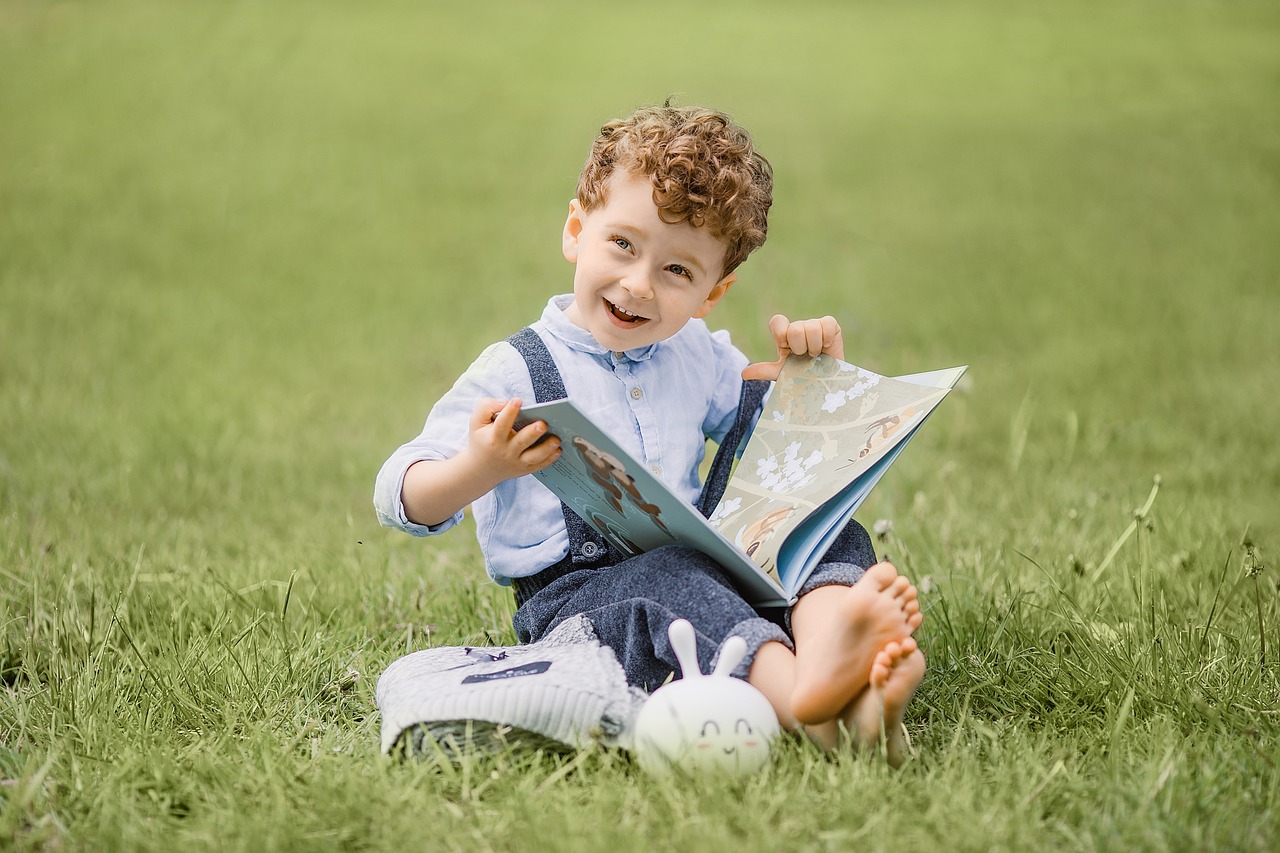
Community and Collaboration
John Dewey believed that education is not just an isolated experience; rather, it thrives in a community setting where collaboration plays a crucial role. Imagine a classroom where students do not merely sit and listen but actively engage with one another. In such an environment, learning becomes a shared journey rather than a solitary task. Dewey's philosophy emphasizes that when students work together, they not only enhance their understanding of the subject matter but also cultivate essential social skills that are vital for their future interactions in society.
Collaboration in education takes many forms. For instance, consider group projects. These projects are more than just assignments; they are opportunities for students to bring their unique perspectives to the table. By collaborating, students learn to respect diverse opinions, negotiate differences, and ultimately, create a product that reflects their collective effort. This process mirrors real-world situations where teamwork is essential. Group projects also foster a sense of belonging, making students feel valued and connected to their peers.
Moreover, peer learning exemplifies Dewey's vision of community in education. When students engage in peer learning, they support one another, share knowledge, and tackle challenges together. This approach not only deepens their understanding but also builds a network of support that can extend beyond the classroom. For instance, students might form study groups where they explain concepts to each other, thus reinforcing their own learning while helping others. This collaborative spirit is what Dewey envisioned as a cornerstone of a democratic education.
In summary, the role of community and collaboration in education is indispensable. Dewey's insights remind us that education should not be a one-way street but rather a vibrant exchange of ideas and experiences. As we move forward in modern educational practices, embracing these principles can lead to more engaged, responsible, and socially aware individuals. The classroom, when viewed as a community, transforms into a dynamic space where students are not just learners but also contributors to a collective knowledge pool.
- What is Dewey's philosophy on education? Dewey believed education should be experiential, focusing on real-life experiences and fostering critical thinking.
- How does collaboration enhance learning? Collaboration allows students to share diverse perspectives, learn from each other, and develop essential social skills.
- What role do group projects play in education? Group projects encourage teamwork, respect for differing opinions, and help students feel connected to their peers.
- Why is peer learning important? Peer learning promotes mutual support among students and enhances understanding through collaborative efforts.

Group Projects
Group projects are not just a trendy educational tool; they are a **powerful embodiment** of John Dewey's philosophy of learning through experience. Imagine a classroom buzzing with energy, where students are not just passively absorbing information but actively engaging with one another to solve a problem or create something new. This dynamic environment fosters collaboration and creativity, mirroring the real-world scenarios they will face outside the classroom. Dewey believed that education should reflect life, and group projects do just that by allowing students to tackle challenges together.
When students work in groups, they are exposed to a variety of perspectives, which enriches their understanding of the subject matter. They learn to appreciate different viewpoints and discover that there isn't always a single right answer. This process not only enhances their critical thinking skills but also prepares them for future collaborative efforts in their careers. After all, the workplace of today thrives on teamwork and collective problem-solving. By engaging in group projects, students are essentially practicing for their future roles as **active participants** in society.
Furthermore, group projects can be structured in various ways to maximize learning outcomes. For instance, teachers might assign roles within the group, ensuring that each student has a specific responsibility. This approach helps students develop a sense of ownership over their work and teaches them accountability. Here’s a quick breakdown of how roles can be defined:
| Role | Description |
|---|---|
| Leader | Guides the project and ensures everyone is contributing. |
| Researcher | Gathers information and resources needed for the project. |
| Presenter | Prepares and delivers the final presentation to the class. |
| Note-taker | Keeps track of ideas and decisions made during group discussions. |
In addition to enhancing academic skills, group projects also promote essential **social skills**. Students learn how to communicate effectively, resolve conflicts, and negotiate with peers—all vital competencies in today's interconnected world. By navigating these social dynamics, they build confidence and become more adept at working with others, preparing them for diverse environments. It's like training for a marathon; the more you practice, the better you get at it. And just as runners benefit from the support of their teammates, students thrive in a collaborative setting where they can lean on one another for guidance and encouragement.
In essence, group projects are a microcosm of Dewey's educational philosophy. They provide a platform for experiential learning, promote democratic ideals of cooperation, and prepare students for active citizenship. So, the next time you see students huddled together, brainstorming and collaborating on a project, remember that they are not just completing an assignment—they are engaging in a **transformative learning experience** that will serve them well throughout their lives.
- What are the benefits of group projects in education? Group projects enhance critical thinking, communication, and collaboration skills, preparing students for real-world challenges.
- How can teachers effectively manage group projects? Teachers can assign specific roles, set clear expectations, and provide ongoing feedback to ensure all students are engaged.
- Are group projects suitable for all age groups? Yes, group projects can be adapted for different age groups and learning levels, fostering teamwork from an early age.

Peer Learning
Peer learning is an essential component of John Dewey's educational philosophy, as it embodies the spirit of collaboration and mutual growth among students. Imagine a classroom where students are not just passive recipients of knowledge but active participants in their learning journey. This dynamic environment fosters a sense of community, where learners can share ideas, challenge each other's perspectives, and collectively navigate the complexities of various subjects. In this context, peer learning becomes a powerful tool that not only enhances academic understanding but also builds crucial social skills.
When students engage in peer learning, they have the opportunity to teach and learn from one another. This reciprocal teaching approach allows students to explain concepts in their own words, which often leads to deeper comprehension. For instance, when a student struggles with a math problem, a peer who has mastered the concept can offer a different explanation or strategy. This process not only reinforces the knowledge of the student providing assistance but also empowers the learner seeking help. Such interactions create a rich tapestry of learning experiences that are often more relatable and engaging than traditional teacher-led instruction.
Moreover, peer learning cultivates essential soft skills that are vital for success in today's interconnected world. Students develop communication skills as they articulate their thoughts and ideas, while also honing their critical thinking abilities as they analyze and evaluate their peers' contributions. Additionally, working in groups encourages empathy and teamwork, as students must navigate diverse opinions and collaborate toward a common goal. This collaborative spirit prepares them for real-world scenarios where teamwork and effective communication are key.
To illustrate the significance of peer learning, consider the following benefits:
- Enhanced Understanding: Learning from peers often leads to a clearer grasp of complex topics.
- Increased Engagement: Collaborative activities keep students actively involved, reducing boredom and apathy.
- Development of Social Skills: Students learn to work together, negotiate, and resolve conflicts.
- Preparation for Future Collaboration: Peer learning mirrors workplace dynamics, preparing students for professional environments.
In summary, peer learning is not just an educational strategy; it is a philosophy that aligns perfectly with Dewey's vision of a democratic and participatory learning environment. By fostering collaboration, encouraging active engagement, and developing essential social skills, peer learning equips students with the tools they need to thrive in both academic and real-world contexts.
- What is peer learning? Peer learning is an educational approach where students learn from each other, sharing knowledge and skills in a collaborative environment.
- How does peer learning benefit students? It enhances understanding, increases engagement, develops social skills, and prepares students for future teamwork in professional settings.
- Can peer learning be implemented in all subjects? Yes, peer learning can be applied across various subjects, adapting to the specific needs and dynamics of each classroom.

Active Participation
Active participation is at the heart of John Dewey's educational philosophy. He firmly believed that students learn best when they are not just passive recipients of knowledge but actively engaged in the learning process. Imagine a classroom where students are not just sitting at their desks, listening to a teacher drone on, but instead, they are bustling with energy, collaborating, debating, and exploring ideas together. This dynamic environment fosters a deeper understanding of the material and ignites a passion for learning.
Dewey argued that when students are involved in their education, they develop critical thinking skills and a sense of ownership over their learning journey. This is akin to a chef who learns to cook not just by reading recipes but by experimenting in the kitchen. The hands-on experience allows for mistakes, discovery, and ultimately mastery of the craft. In the same way, active participation transforms students from mere consumers of information into creators of knowledge.
Moreover, active participation cultivates essential life skills that extend beyond the classroom. Students learn to communicate effectively, work collaboratively, and think critically—skills that are indispensable in today's fast-paced world. For instance, consider a classroom project where students are tasked with solving a real-world problem. They must brainstorm, research, and present their solutions, all while navigating differing opinions and perspectives. This process not only enhances their understanding of the subject matter but also prepares them for future challenges in their personal and professional lives.
To illustrate the impact of active participation, let’s look at a few key benefits:
- Enhanced Understanding: Engaging with material actively leads to better retention and comprehension.
- Increased Motivation: Students are more likely to be invested in their learning when they have a say in the process.
- Development of Social Skills: Collaborative learning fosters communication and teamwork abilities.
Incorporating active participation into the classroom can take many forms. Teachers can implement strategies such as group discussions, hands-on experiments, and real-world problem-solving tasks. The goal is to create an environment where students feel empowered to express their thoughts, ask questions, and engage with their peers. After all, learning is not just about acquiring knowledge; it's about developing the ability to think critically and act responsibly in a democratic society.
As we move further into an era defined by rapid technological advancements and global interconnectivity, Dewey's emphasis on active participation remains more relevant than ever. Educators who embrace this philosophy are not just teaching content; they are nurturing informed, engaged citizens who are ready to tackle the complexities of the modern world.
- What is active participation in education? Active participation refers to students engaging directly in the learning process, rather than passively receiving information.
- How does active participation benefit students? It enhances understanding, increases motivation, and develops essential social skills.
- What are some ways to encourage active participation? Group discussions, hands-on projects, and problem-solving activities are effective strategies.
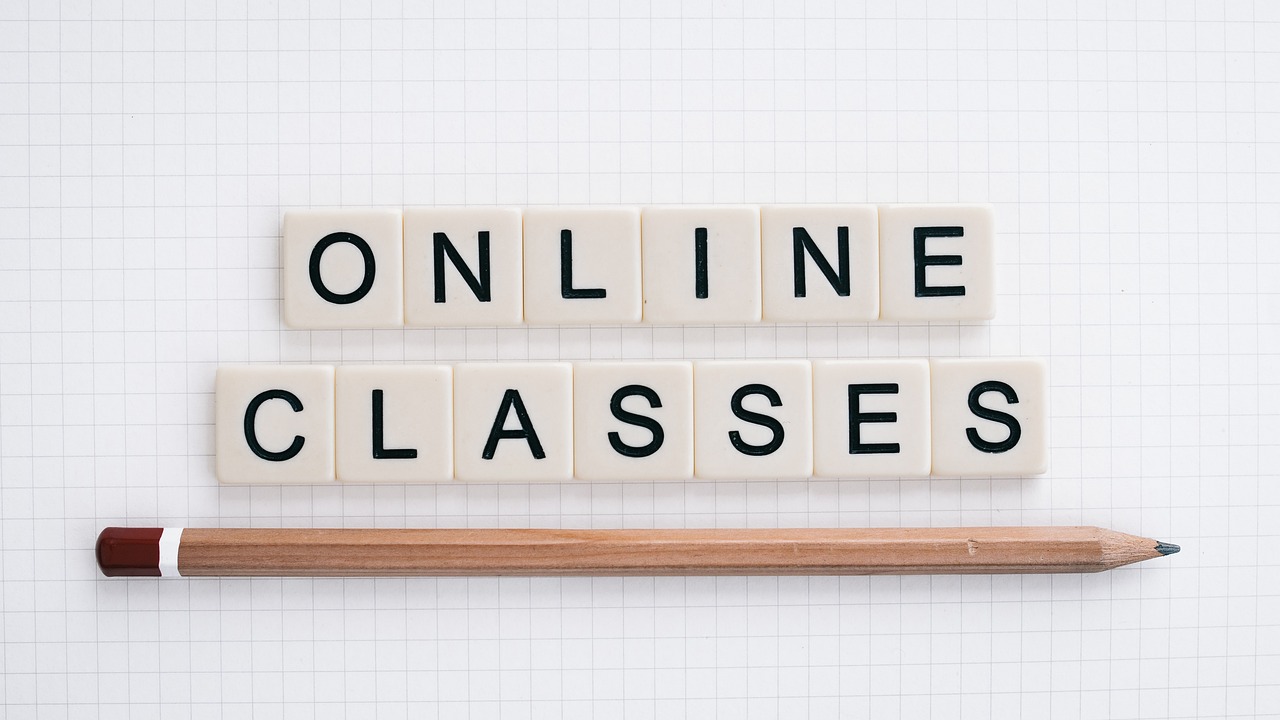
Relevance of Dewey's Theories Today
John Dewey's theories on education are not just relics of the past; they resonate profoundly within the frameworks of modern educational practices. In a world that is constantly evolving, Dewey's emphasis on student-centered learning and critical thinking has never been more relevant. His ideas encourage educators to move away from traditional rote memorization methods and embrace a more dynamic approach to teaching that prepares students for real-world challenges.
One of the most significant aspects of Dewey's philosophy is the concept of project-based learning. This approach allows students to immerse themselves in hands-on projects that are not only engaging but also relevant to their lives. For instance, when students work on a project that tackles community issues, they are not just learning about theoretical concepts; they are applying their knowledge to create tangible solutions. This experiential learning fosters a deeper understanding of the subject matter and cultivates essential skills such as creativity, collaboration, and critical analysis.
Moreover, the integration of technology in education aligns seamlessly with Dewey's vision. Today’s classrooms are equipped with innovative tools that enhance the learning experience, making education more accessible and interactive. For example, digital platforms enable students to collaborate on projects in real-time, regardless of their physical location. This not only enriches their learning experience but also prepares them for the challenges of the digital age. In fact, the following table illustrates how Dewey's principles can be observed in contemporary educational practices:
| Dewey's Principles | Modern Educational Practices |
|---|---|
| Experiential Learning | Project-Based Learning |
| Democracy in Education | Collaborative Learning Environments |
| Active Participation | Interactive Technology Use |
| Community Engagement | Service Learning Projects |
In addition to project-based learning and technology integration, Dewey's advocacy for active participation remains a cornerstone of effective education. Students are encouraged to take charge of their learning, leading to greater motivation and a sense of ownership over their educational journey. This shift from passive learning to active engagement is crucial, especially in an era where information is at our fingertips. Students who participate actively in their education are more likely to develop a lifelong love for learning, which is invaluable in today's fast-paced world.
Furthermore, Dewey's ideas about fostering a sense of community and social responsibility in education are incredibly pertinent. As the world faces complex social issues, it is essential for educators to cultivate a sense of civic duty among students. By encouraging students to engage with their communities and understand their role within them, educators are helping to build a generation that is not only knowledgeable but also socially conscious and responsible. This is particularly important in a democracy, where informed citizens are vital for its sustainability.
In conclusion, John Dewey's educational theories continue to shape modern pedagogical approaches. His emphasis on experiential learning, democracy in education, and active participation resonates deeply in today's classrooms. As educators strive to prepare students for an uncertain future, Dewey's insights provide a robust framework that promotes critical thinking, creativity, and social responsibility, ensuring that education remains relevant and impactful.
- What is experiential learning? Experiential learning is a process where students learn through direct experience, engaging in hands-on activities that promote critical thinking and problem-solving.
- How can Dewey's ideas be applied in modern classrooms? Dewey's ideas can be applied through project-based learning, collaborative environments, and the integration of technology to enhance student engagement.
- Why is community engagement important in education? Community engagement helps students develop social responsibility and understand their role in society, which is essential for the functioning of a healthy democracy.
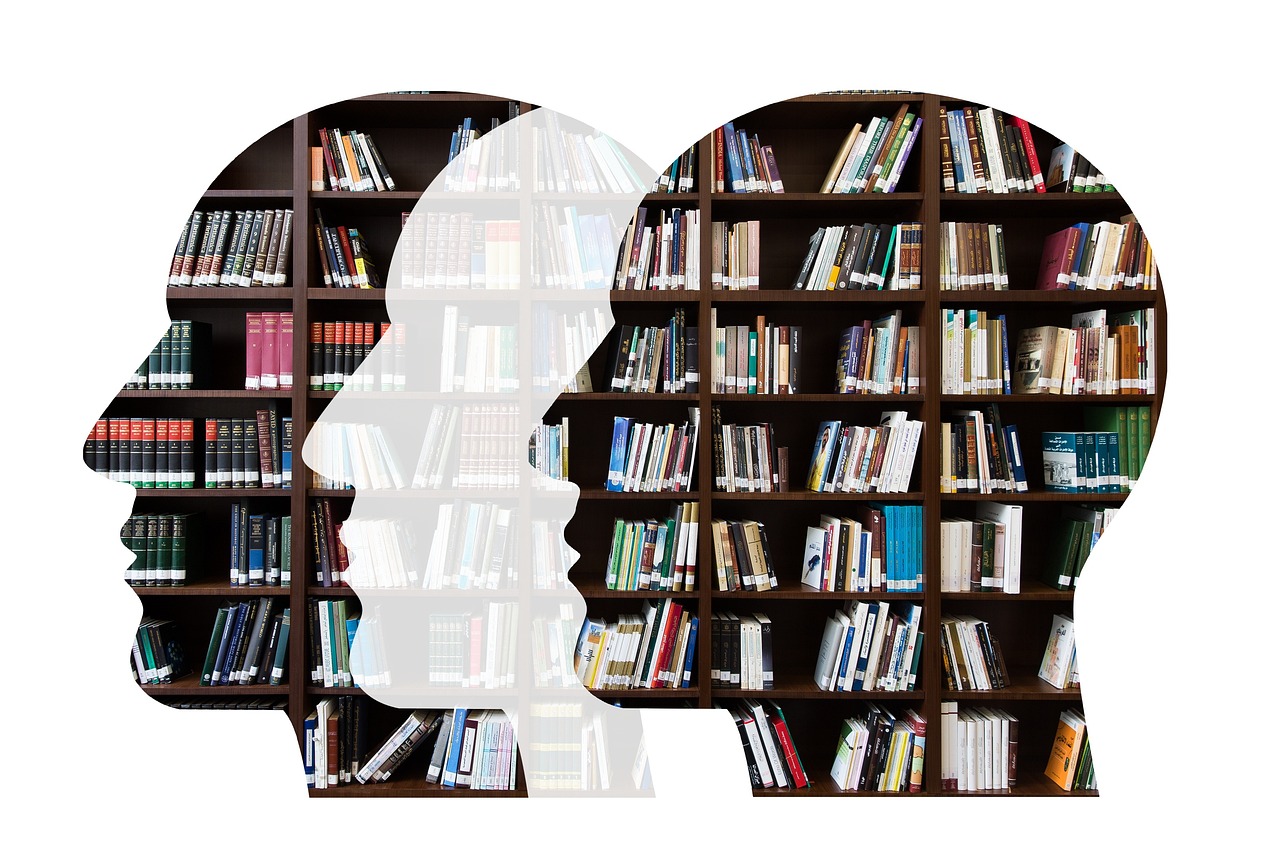
Project-Based Learning
Project-based learning (PBL) is a dynamic classroom approach in which students actively explore real-world problems and challenges. This method is a perfect embodiment of John Dewey's philosophy, as it encourages students to take charge of their learning through hands-on projects that require critical thinking, collaboration, and creativity. Imagine a classroom buzzing with excitement, where students are not just passively listening to lectures but are deeply engaged in solving a pressing issue in their community or creating a product that addresses a specific need. This kind of learning fosters a profound understanding of the subject matter, making education not just a theoretical exercise but a practical, impactful experience.
In project-based learning, students often work in groups, which aligns beautifully with Dewey's emphasis on collaboration and community. When students collaborate on projects, they bring diverse perspectives to the table, allowing them to learn from one another. For instance, consider a group of students tasked with developing a sustainable garden for their school. Each student might take on a different role—researching plant species, designing the layout, or calculating costs—thus learning valuable skills while also understanding the importance of teamwork. This collaborative approach not only enhances their learning experience but also instills a sense of responsibility and social awareness.
Moreover, project-based learning can be tailored to incorporate technology, making it even more relevant in today's digital age. Students can utilize various tools and platforms to document their projects, conduct research, and present their findings. This not only makes the learning process more engaging but also equips students with essential skills that are crucial in the modern workforce. The integration of technology in PBL allows students to connect their projects to global issues, fostering a sense of global citizenship and awareness.
Here's a quick overview of the key benefits of project-based learning:
- Enhanced Engagement: Students are more motivated when they see the real-world application of their work.
- Development of Critical Skills: PBL promotes critical thinking, problem-solving, and communication skills.
- Preparation for Future Challenges: Students learn to navigate complex, real-world situations, preparing them for future endeavors.
- Fostering Creativity: The open-ended nature of projects encourages students to think outside the box and innovate.
In conclusion, project-based learning is not just a teaching strategy; it is a philosophy that resonates with Dewey's vision of education as a tool for personal and social growth. By allowing students to engage in meaningful projects, we not only enhance their learning experience but also prepare them to become active, responsible members of society.
1. What is project-based learning?
Project-based learning is an instructional approach where students learn by actively engaging in real-world and personally meaningful projects.
2. How does project-based learning benefit students?
It enhances engagement, develops critical skills, prepares students for future challenges, and fosters creativity.
3. Can project-based learning be integrated with technology?
Absolutely! Technology can be used to enhance research, collaboration, and presentation within project-based learning.
4. How does project-based learning align with Dewey's philosophy?
It emphasizes experiential learning, collaboration, and active participation, all of which are central to Dewey's educational theories.
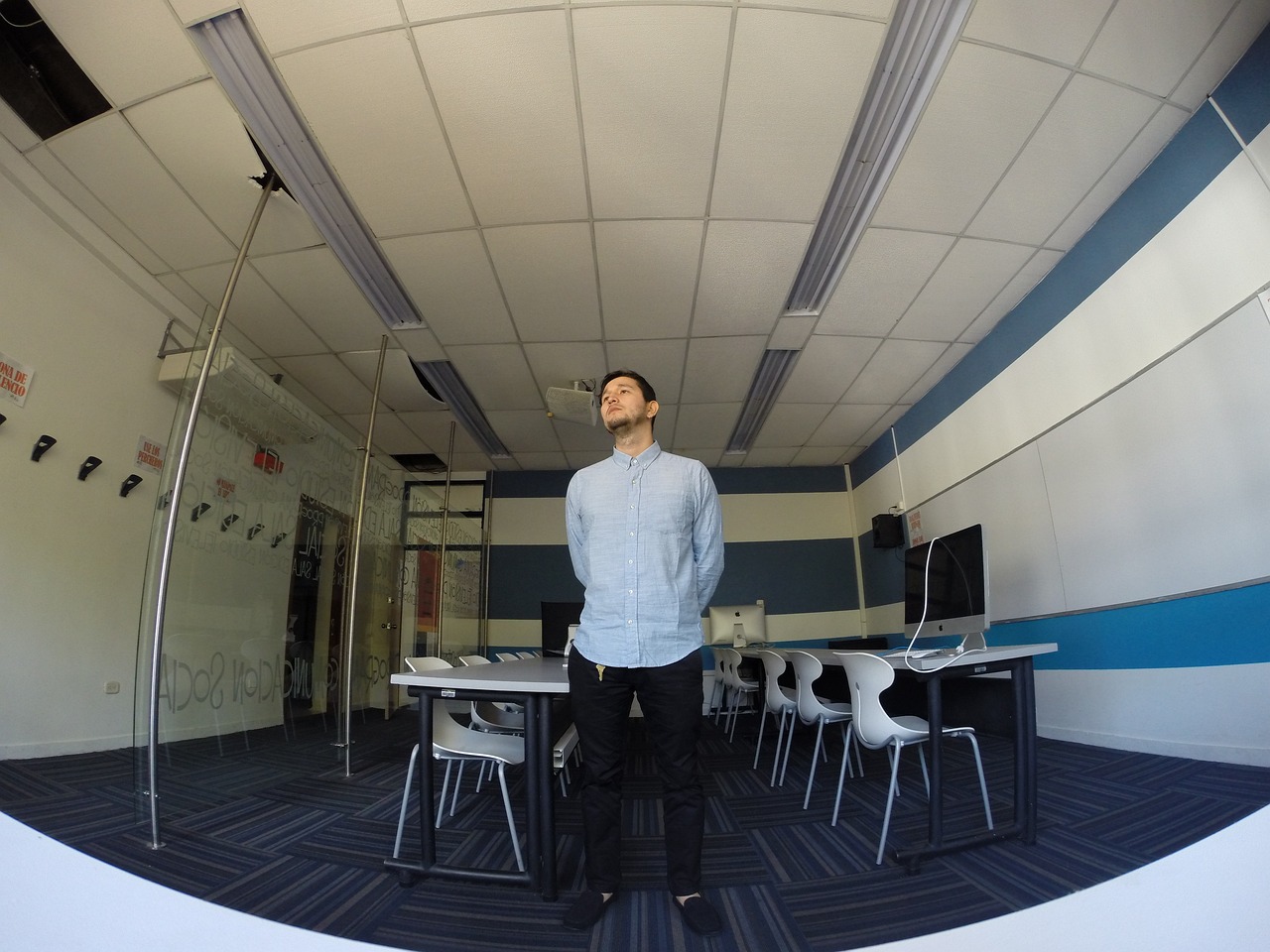
Technology in Education
In today's fast-paced world, the role of cannot be overstated. John Dewey's vision for education was not only about the content being taught but also about the methods used to deliver that content. He believed that education should evolve with the times, and in our digital era, this means integrating technology into the learning process. Imagine a classroom where students can access a world of information at their fingertips, collaborate with peers around the globe, and engage in interactive learning experiences. This is not just a dream; it is a reality that Dewey would have championed.
One of the most significant impacts of technology in education is the shift from traditional teaching methods to more student-centered approaches. With the use of digital tools, students can take charge of their learning. For instance, online resources and educational platforms allow learners to explore subjects at their own pace, diving deeper into topics that intrigue them. This personalized approach aligns perfectly with Dewey's belief that education should be relevant to the individual, fostering a sense of ownership and engagement.
Moreover, technology facilitates collaboration among students, which Dewey emphasized as a critical component of learning. Through online forums, group projects using cloud-based tools, and video conferencing, students can work together regardless of their physical location. This not only enhances their understanding of the subject matter but also builds essential social skills. Just think about it: students today can easily collaborate on a science project with a peer from another country, sharing diverse perspectives and learning from one another in ways Dewey could only have imagined.
Additionally, technology opens doors to innovative learning experiences. Virtual reality (VR) and augmented reality (AR) are transforming how students engage with complex concepts. For example, a history lesson can come alive as students virtually walk through ancient civilizations or experience historical events firsthand. This immersive learning experience is a far cry from the traditional textbook approach and is something Dewey would have embraced wholeheartedly.
However, it's essential to note that while technology offers numerous advantages, it also comes with challenges. Educators must ensure that all students have access to these tools, as disparities in technology access can lead to inequality in education. Dewey believed in the power of education to promote social equity, and this principle should guide our approach to technology integration. Schools must strive to provide resources and training for both students and teachers to ensure everyone can benefit from the digital revolution.
In conclusion, the incorporation of technology in education is not just a trend; it is a fundamental shift that aligns with John Dewey's educational philosophy. By embracing technology, we can create dynamic, engaging, and relevant learning environments that prepare students for the challenges of the modern world. As we move forward, let’s keep Dewey’s vision alive—one where education is not just about information but about experience, collaboration, and active participation.
- How does technology enhance experiential learning?
Technology provides tools for hands-on experiences, allowing students to engage in real-world applications of their knowledge. - What are some examples of technology used in modern classrooms?
Examples include interactive whiteboards, educational apps, online collaboration tools, and virtual reality experiences. - How can educators ensure equal access to technology?
Schools can implement programs that provide devices and internet access to students in need, along with training for effective use.
Frequently Asked Questions
- What is experiential learning according to John Dewey?
Experiential learning, as defined by John Dewey, is the process of learning through direct experience. Dewey believed that education should not be confined to textbooks; instead, it should involve real-life situations where students can engage, reflect, and apply their knowledge. This hands-on approach cultivates critical thinking and problem-solving skills that are essential in today’s fast-paced world.
- How does Dewey's philosophy promote democracy in education?
Dewey's philosophy promotes democracy in education by encouraging collaborative learning. He argued that education should empower students to work together, share ideas, and develop a sense of social responsibility. This collaborative spirit not only enhances individual learning but also prepares students to actively participate in a democratic society, fostering a culture of respect and cooperation.
- What role do group projects play in Dewey's educational philosophy?
Group projects are a practical embodiment of Dewey's educational philosophy. They allow students to collaborate, share diverse perspectives, and learn from one another. This kind of teamwork not only enriches the learning experience but also builds a sense of community in the classroom, preparing students for future interactions in various social contexts.
- Why is active participation important in Dewey's view of education?
Active participation is crucial in Dewey's view because he believed that students learn best when they are engaged in the educational process. Rather than being passive recipients of information, students become active participants who explore, question, and apply their knowledge. This engagement leads to deeper understanding and retention of information, making learning more meaningful and effective.
- How are Dewey's theories relevant in modern education?
Dewey's theories remain highly relevant in modern education, influencing contemporary pedagogical approaches that prioritize student-centered learning and critical thinking. His ideas are reflected in practices like project-based learning and the integration of technology in the classroom, which encourage hands-on experiences and prepare students for the challenges of the digital age.
- What is project-based learning, and how does it relate to Dewey's philosophy?
Project-based learning is an instructional approach that encourages students to engage in real-world projects, fostering creativity and deeper understanding of subjects. This method aligns perfectly with Dewey's philosophy, as it emphasizes experiential learning and allows students to apply their knowledge in practical situations, making their education more relevant and impactful.
- How does technology enhance learning in Dewey's educational framework?
Technology enhances learning in Dewey's educational framework by providing innovative tools that facilitate experiential learning. By integrating technology into the classroom, educators can create dynamic learning environments that engage students and prepare them for the complexities of the digital world. This alignment with Dewey's vision ensures that education evolves with societal changes, making it more effective and relevant.















